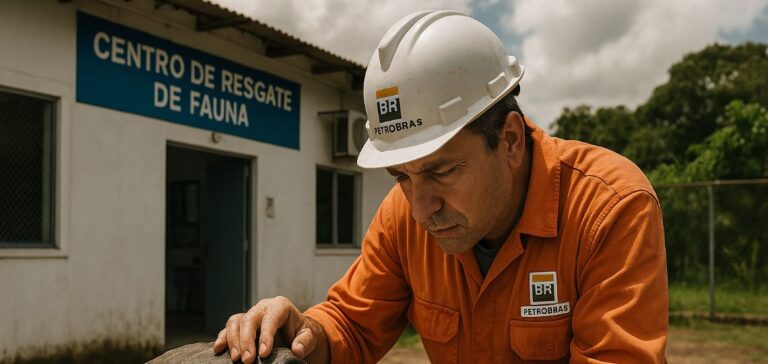Petróleo Brasileiro S.A. (Petrobras) has finalised the construction of a veterinary centre in the municipality of Oiapoque, in the state of Amapá, within the Brazilian Amazon. This initiative meets a condition set by the Brazilian Institute of Environment and Renewable Natural Resources (Ibama) for obtaining an offshore drilling permit in the Foz do Amazonas region. Now operational, the facility is designed to care for wildlife in the event of an oil spill and represents a central element of Petrobras’ renewed permit application.
A strategic move to revive the project
The centre has received an operating licence from the state of Amapá, but remains subject to evaluation by Ibama before any final decision is made. It is open for inspection, marking a critical step in Petrobras’ effort to resume exploration activities in this offshore area considered highly promising. Located approximately 540 kilometres off the coast of Amapá, the Foz do Amazonas region lies on the equatorial margin, near Suriname and Guyana. These neighbouring countries have collectively reported oil discoveries exceeding 11 billion barrels, sparking interest in the adjacent Brazilian area.
Environmental objections and renewed application
Petrobras’ initial request for a drilling licence was denied by Ibama in 2023 due to concerns over the region’s fragile ecosystems. However, the company has resubmitted its application, highlighting enhanced safety measures including the wildlife centre, in a bid to satisfy regulatory requirements. No timeline has been provided for Ibama’s final decision, leaving the project in regulatory limbo.
Equipment mobilisation and preliminary tests
Meanwhile, Petrobras plans to move its drilling rig to the FAZ-M-59 block once regulatory clearance is granted. The company will then carry out a pre-operational assessment to demonstrate the effectiveness of its emergency response systems. This phase is essential before Ibama can issue any definitive authorisation. The project’s progression now hinges on the technical review of the facility and Petrobras’ compliance with Brazilian environmental standards.






















